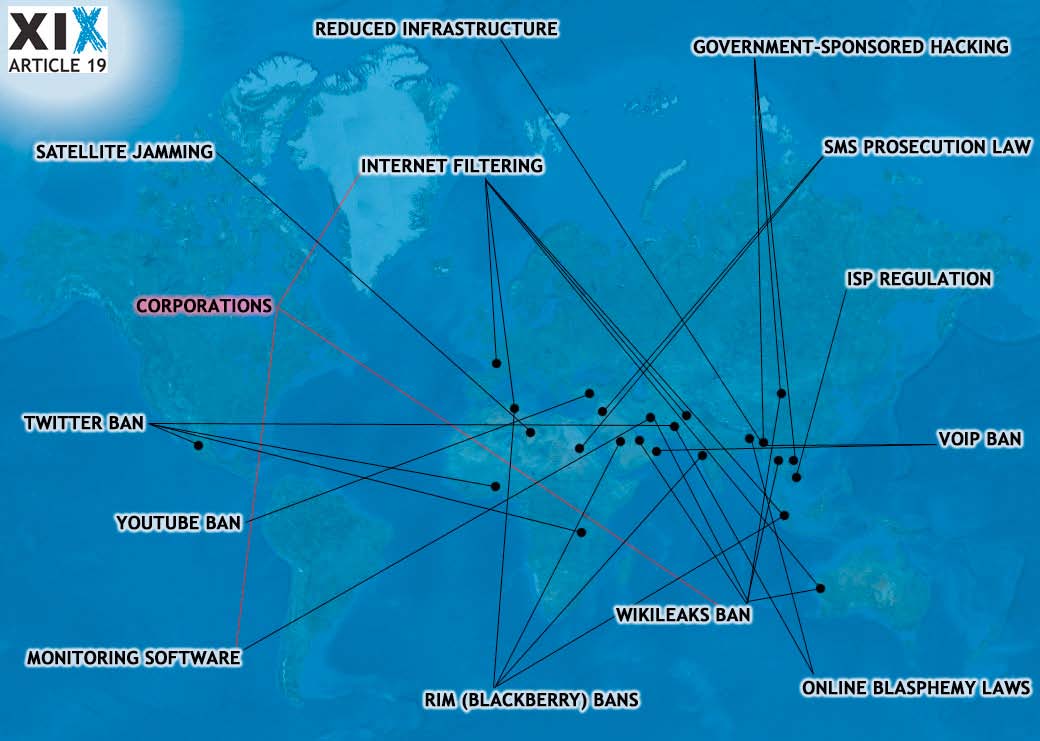Many governments, are trying hard to restore or fortify barriers to trace, block, target and censor those who champion the truth, ARTICLE 19 said.
(ARTICLE 19/IFEX) – 3 May 2011 – Free speech, media and information flows increasingly ignore and elude physical frontiers or national boundaries. Many governments, fearful of this lack of control, are trying hard to restore or fortify barriers to trace, block, target and censor those who champion the truth.
No Frontiers
Throughout the last year, a series of revelations have sent shockwaves across the world. Photos, reports, articles, messages and videos originating in one place are instantly shared with another. Outrage and embarrassment spread in equal measure, corruption is magnified, people-power amplified, and governments fall.
Wikileaks has revolutionised transnational whistleblowing. Today, people can publish information in the public interest regardless of where they live, and with minimal possibility of being traced. Information uploaded in New York can rapidly impact current affairs in countries as far removed as Nepal, Nicaragua, Nigeria or Norway. Wikileaks has proven so popular that there are now a number of similar websites, including: BalkanLeaks, BrusselsLeaks (European Union), IndoLeaks (Indonesia) OpenLeaks, RuLeaks (Russia), TuniLeaks (Tunisia) and TradeLeaks.
( . . . )
New Barriers
Governments are however beginning to fight back. Attempts to curtail global information flows have focused on trying to force national boundaries and barriers on transnational currents. Limits are ill defined and punishments vague and imprecise, resulting in real threats to freedom of expression.
Three of the world’s most visited online hubs are social media websites. Two, Facebook and Twitter, are subject to regular bans and blocks by governments worldwide for fermenting dissent. The Chinese government tightly controls the third, Baidu. Authoritarian governments have an interest not only in stopping people from organising online, but also from preventing them from accessing information outside of the traditional control of censorship mechanisms.
( . . . )



